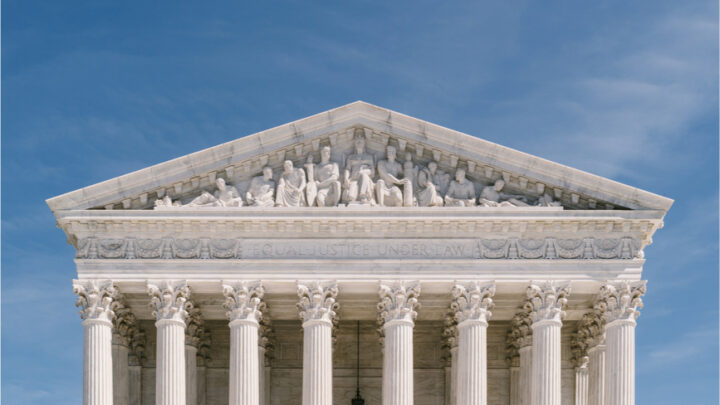
Most people don’t like to be told that they can’t do something. It feels restrictive and against human nature to be placed within a regulatory box. However, there are circumstances when it becomes virtually impossible to avoid such restrictions, namely: a non-compete agreement.
These agreements can be quite restrictive, even compared to the typical non-compete agreement that a corporate worker might sign. Additionally, they can also have unusual clauses that are not typically seen in most legal documents. Given the complex nature of these documents, it is vital that physicians know how they work, and how their jobs could be impacted.
What is a non-compete clause?
The simple definition of a non-compete clause is that it is a provision within an employment contract that prohibits the signer from working for another employer within the same industry. A poll on Sermo revealed that 66% of doctors are already under some type of non-compete clause:
- Yes, I do have a non-compete clause or would consider one: 32%
- Yes, but I hope that the FTC ruling will eliminate this concern: 22%
- Yes, but the clause is limited, so I don’t anticipate it being an issue: 12%
One GP on Sermo shared, “Non-compete agreements often force workers to remain in a job they want to leave or to endure other significant harms and costs, such as being forced to move to a lower-paying sector, relocate, or leave the labor market altogether… We do not work for money. But with convictions and love for what we do. Of course we want improvements in salaries and perhaps conditions, but this should not affect those who are our priority: our patients, who will be the victims of a system of competition and not of better care.”
Given this sentiment, it is particularly frustrating for many physicians that they are so often required to sign non-compete agreements.

How do non-compete clauses affect physicians?
The restrictions that come with non-compete clauses for physicians are extensive and can create obstacles that are not easy to overcome. These restrictions impact the way physicians do their work and could affect patient health outcomes as a result. Some worth noting include:
Limit job opportunities within a specific geographic area
Typical non-compete clauses require that physicians not accept another job in the same industry within a certain geographic proximity to the clinic where they currently work. These clauses have a time limit on them, but they are extremely restrictive while they are in place, adding extra pressure onto the shoulders of physicians to potentially relocate, which might be their only option if they wish to continue practicing.
One US-based doctor stated the following about their frustrations with this: “My current contract has a non compete. I live and practice in a rural area and with my current non compete clause if I had to switch clinic the next closest one in a big enough town outside the non compete would be 2 hours away. If the non compete was null and void there is another practice in my area that I could see patients at and not have to uproot my whole family to do so.ˮ
Prevent working with former patients
A common stipulation requires that physicians agree that they will not work with former patients if they move to another clinic. This is done to prevent physicians from taking patients with them when they make a move to another facility. However, the doctor-patient relationship is a very intimate one, and many patients may experience emotional discomfort from no longer being able to see the same physician if that professional leaves for another facility.
Physicians can also discover that their ability to start private practice has been severely hampered by a non-compete clause. Depending on the specifics of their agreement, the geographic limitations might stop them from starting their own private facility. That is yet another way that these agreements clamp down on professional growth and development. One Pediatrician on Sermo shared, “I had my own practice for 30 years before working for group for 7 years. My initial plans were to only work for a few months and ease into retirement. So the inclusion of a non-compete clause was not relevant. But as i continued to practice and as differences in philosophy between myself and the owners developed, the inability to at least have the option to leave and practice in the area in which I had worked for over 30 years seemed more onerous. Ultimately covid and my being at high risk for multiple reasons, led to my happy retirement. But in hindsight the restriction seemed unfair. After all, I was there first. But seriously, all that can be done to aid independent practices should be done just in the spirit of fair competition.”
Delay career transitions via waiting periods
Physicians will often find themselves waiting out the clock on a non-compete agreement before they can move to another facility. ““My company issued a new employment contract that has a non-compete clause that prohibits me from working in the industry for a year after leaving. This basically makes it impossible to take another job in my area of expertise” said an Emergency Medicine physician. This delays their ability to advance in their career and make the best moves for their professional development. Despite this, waiting periods are an incredibly common aspect of all non-compete agreements.
Reduces bargaining power during negotiations
Working under a non-compete agreement means that a physician sacrifices some of their negotiating power when they sit down to negotiate their salary with their employer. The employer holds all of the chips in those scenarios because they know that they can lock down the physician and their labor for the period of time that the non-compete agreement is in effect.
Discourages moonlighting or locum tenens work
Non-compete agreements can significantly restrict physicians’ ability to pursue supplemental work, such as moonlighting or locum tenens roles, especially when these clauses prevent them from practicing within a certain geographic area. This limits their flexibility and bargaining power, often leaving them stuck in financially unsustainable positions. These restrictions not only harm individual physicians but also contribute to broader economic challenges in healthcare, reducing the supply of available doctors, especially in underserved areas, and driving up patient costs due to limited access and staffing shortages. “Noncompetes in healthcare contribute to lower physicians’ wages and higher patient costs,” noted a Psychiatrist in the U.S.

Are physician non-compete agreements being banned?
Given the volume of legitimate complaints about physician non-compete agreements, there have been some significant efforts to ban their use outright, which have gained enough momentum that real progress has been made.
In April 2024, the Federal Trade Commission (FTC) issued an order to ban the use of non-compete agreements across many industries, including the use of these agreements for physicians. However, in August 2024, a federal court struck down the nationwide ban on non-compete agreements, making the rule unenforceable at this present time.
This was surprising to many as 78% of physicians surveyed on Sermo stated that they felt that the ruling would be upheld:
- Yes, I believe it will be upheld quickly: 37%
- Yes, I believe it will be upheld, but that will take many years: 41%
An Internist on Sermo shared, ““The FTC’s ruling to ban non-compete clauses aims to enhance worker mobility and foster innovation but faces opposition from employers who argue these clauses protect their investments and maintain stability. Physician groups largely support the ban, while hospitals and smaller practices express concerns about retaining staff. The U.S. Chamber of Commerce has sued to block the ruling, citing concerns over the FTC’s authority.” Still, doctors supported the banning of non-compete agreements in their field. 83% expressed their support for the FTC’s rule, while only 17% stated that they were opposed. With that overwhelming level of support among physicians, it is hard to imagine that changes aren’t coming in some form.
One Family Doctor expressed their opinion bluntly: “I fully support the ban on non-compete clauses. I recognize this may be a concern for private practices, but the benefits of lifting non-compete clauses far outweigh the risks to the small number of private practices that maybe affected.”
What happens if you don’t comply with a non-compete clause?
Some physicians find themselves questioning the real consequences of defying a non-compete clause. While they may have signed the agreement earlier in their careers, often under pressure or without fully understanding its long-term impact, they now feel that the restrictions are unreasonable or even unethical. An Anesthesiologist writes, “My non-compete is very limited but I know a lot of people stuck in very restrictive contracts.” The idea of being bound by such rigid terms, especially when patient care and personal livelihood are at stake, leads many to reconsider whether strict compliance is truly justified.
Below are some potential implications for physicians who choose to disregard a non-compete agreement:
- Legal Action – Perhaps the most serious risk is the possibility of legal action from a former employer. In some cases, courts may order the physician to pay monetary damages for breaching the contract.
- Job Loss – Violating a non-compete clause can almost certainly lead to termination from the current role, especially if the employer views it as a breach of trust or policy.
- Reputational Damage – Colleagues and future employers may view a physician who disregards contractual obligations as unprofessional, which can lead to lasting damage to their reputation within the medical community.
Each of these outcomes carries weight and should be carefully weighed against the perceived benefits of breaking the agreement.

Your key takeaway
Non-compete clauses place significant constraints on physicians’ career mobility—restricting where they can work, the scope of their practice, and even their ability to launch a private practice or maintain continuity of care with patients. These agreements often fuel dissatisfaction and burnout by reducing physicians’ bargaining power, delaying career transitions, and sometimes compelling them to remain in unfavorable positions or relocate. In response, there is increasing legal and regulatory momentum to ban or limit non-compete clauses in healthcare, with the FTC and several states pushing reforms—though these efforts continue to face legal hurdles.
Non-compete agreements are not gone yet, but they are controversial
Non-compete agreements remain in effect for now, but they continue to stir debate. While some legal and regulatory efforts have challenged their use, these clauses have not been eliminated entirely and still appear in many physician contracts. For any physician facing a job offer that includes a non-compete, it’s essential to weigh the potential benefits and limitations carefully. Depending on one’s long-term goals and local job market, agreeing to such terms may not always be in their best interest.
On Sermo, physicians can share their experiences with non-compete agreements, seek the advice of their peers, and discuss how to navigate non-competes in their contracts while laws vary widely and continue to evolve. Join the physician community to add your thoughts to the ongoing discussion.
People also ask
This portion of the agreement defines the geographic parameters that a physician is restricted from taking a job within while they work for their current employer. In other words, an employer might require that an employee not take a job from a competitor within a 5-mile radius of their location.
Generally speaking, these agreements tend to remain in effect for a period of about 1 to 2 years after they are signed.
Any activity that involves a physician potentially accepting a job from a competitor may be restricted. However, there are limits to how much these agreements can restrict one’s free speech rights.
Some non-compete agreements will include a buyout clause that allows the physician to pay a certain amount of money to get out of the non-compete agreement even after they have already entered it. That money is paid to the employer to be freed from the constraints of the non-compete agreement.















